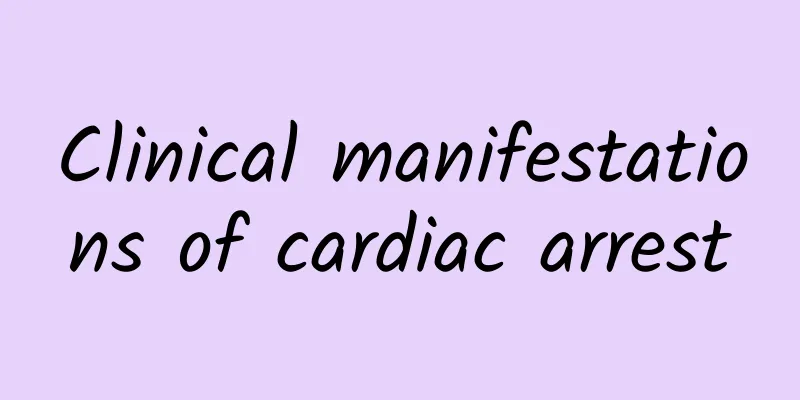What to do if myocardial ischemia

|
In life, there are some people who scare themselves. When they hear that they have a disease, they feel that there is no hope and they see no hope. How can you see hope if you have blinded yourself? Since this disease occurs, there must be a treatment for it, such as myocardial ischemia. There are already many ways to treat myocardial ischemia, but we are still looking for the most effective treatment. Today I will tell you what to do if you have myocardial ischemia. Myocardial ischemia refers to a pathological condition in which the heart's blood perfusion is reduced, resulting in reduced oxygen supply to the heart, abnormal myocardial energy metabolism, and inability to support the normal functioning of the heart. The blood supply to the heart is not constant, but fluctuates all the time. However, this fluctuation is regulated by the body itself, which keeps the supply and demand of blood relatively constant and ensures the normal functioning of the heart. If myocardial ischemia is caused by any reason and the body's regulation cannot meet the heart's working needs, this constitutes true myocardial ischemia. Why does the heart suffer from ischemia? Low blood pressure, reduced blood supply to the aorta, and obstruction of the coronary arteries can directly lead to reduced blood supply to the heart; valvular heart disease, changes in blood viscosity, and myocardial lesions can also reduce blood supply to the heart. There is another situation where the heart's blood supply does not decrease, but the heart's oxygen demand increases, which is a relative myocardial ischemia. The blood vessels that supply blood to the heart are called coronary arteries, and their openings are in the ascending aorta. Clinically, the main and most common cause of myocardial ischemia is coronary artery stenosis. The main cause of coronary artery stenosis is atherosclerosis. The heart disease caused by coronary atherosclerosis is commonly known as coronary heart disease. Therefore, coronary heart disease is the "culprit" of myocardial ischemia. Myocardial ischemia may have many adverse effects on the heart and the whole body. Oxygen is an essential substance for the activity of myocardial cells, and oxygen is delivered to cells through the blood. The heart has no "oxygen warehouse" and relies entirely on myocardial blood supply, so once it is ischemic, hypoxia will immediately occur. The direct consequence of hypoxia is the weakening of aerobic metabolism of myocardial cells and reduced production capacity, resulting in insufficient supply of energy necessary for cardiac activity, causing angina pectoris, arrhythmias, and decreased cardiac function. At the same time, metabolic waste cannot be removed effectively and promptly, which can easily lead to adverse effects. Ischemia, hypoxia and lack of energy will eventually affect the heart's contractile function. If 20% to 25% of the myocardium stops contracting, left ventricular failure usually occurs; if more than 40% of the myocardium fails to contract, severe cardiac pump failure will occur. If this happens suddenly, very dangerous cardiogenic shock can occur. Acute myocardial infarction is often associated with this condition. Myocardial ischemia can also impair diastolic function. The combination of poor contraction and poor relaxation can easily lead to increased ventricular filling pressure, causing pulmonary congestion, and may also cause complex metabolic disorders and abnormal myocardial electrical activity. Therefore, once myocardial ischemia occurs, the cause should be identified and treated symptomatically to avoid potential serious consequences. Myocardial ischemia It is a type of coronary heart disease. The treatment plan is to choose nitrate drugs (such as isosorbide mononitrate or its sustained-release formulation), which can dilate the coronary arteries of the heart and increase myocardial blood supply. Statins (such as atorvastatin and simvastatin) should also be taken to lower plasma cholesterol on the one hand and stabilize arterial plaques on the other hand to prevent plaques from falling off and forming blood clots, causing stroke, etc. |
<<: Myocardial ischemia-reperfusion injury
>>: Treatment of myocardial damage
Recommend
Autumn is here, both men and women have to touch here
After the beginning of autumn, the Yin energy beg...
Can rhinitis be cured?
Rhinitis is mainly some non-seasonal rhinitis, wh...
Is male congenital genital malformation hereditary?
Various congenital problems often occur, such as ...
What is Buddha's Hand?
Buddha's hand is quite common in life. It has...
What is cor pulmonale? How is it caused?
There are many causes of cor pulmonale, such as b...
How to treat postpartum milk leakage
The treatment for postpartum women who have milk ...
40-year-old women can choose these four methods to maintain their ovaries
For women around 40 years old, if they want to st...
The fourth day of menstruation is very painful
Irregular menstruation itself can cause certain h...
Scars fade naturally
Don’t be afraid of leaving obvious scars on your ...
What are the traditional Chinese medicine remedies for treating athlete’s foot?
I believe everyone should be familiar with the di...
Gluconolactone hazards
The main use of gluconolactone is to treat tofu. ...
What are the effects and functions of rock sugar soaked in vinegar?
Vinegar is a seasoning used in daily cooking. Vin...
The efficacy of traditional Chinese medicine Xu Changqing
As a kind of medicine, Xu Changqing can help us p...
Mild obstruction of lung function
Mild obstruction of lung function can be treated ...
Characteristics of visceral pain
Pain in any part of the body indicates the presen...









